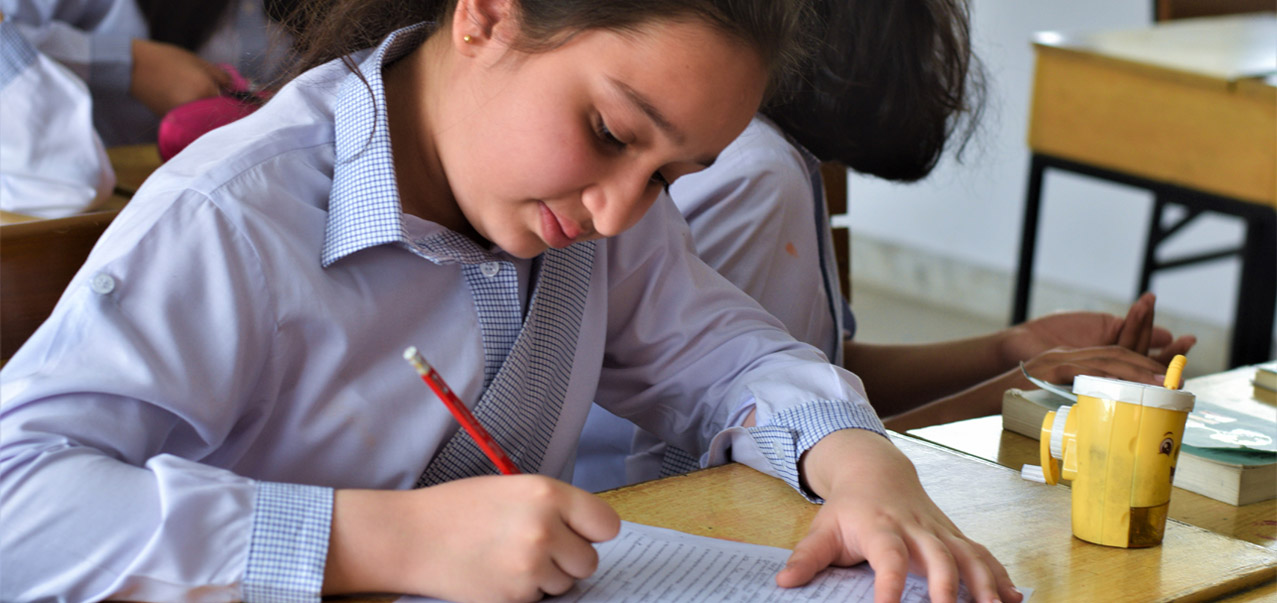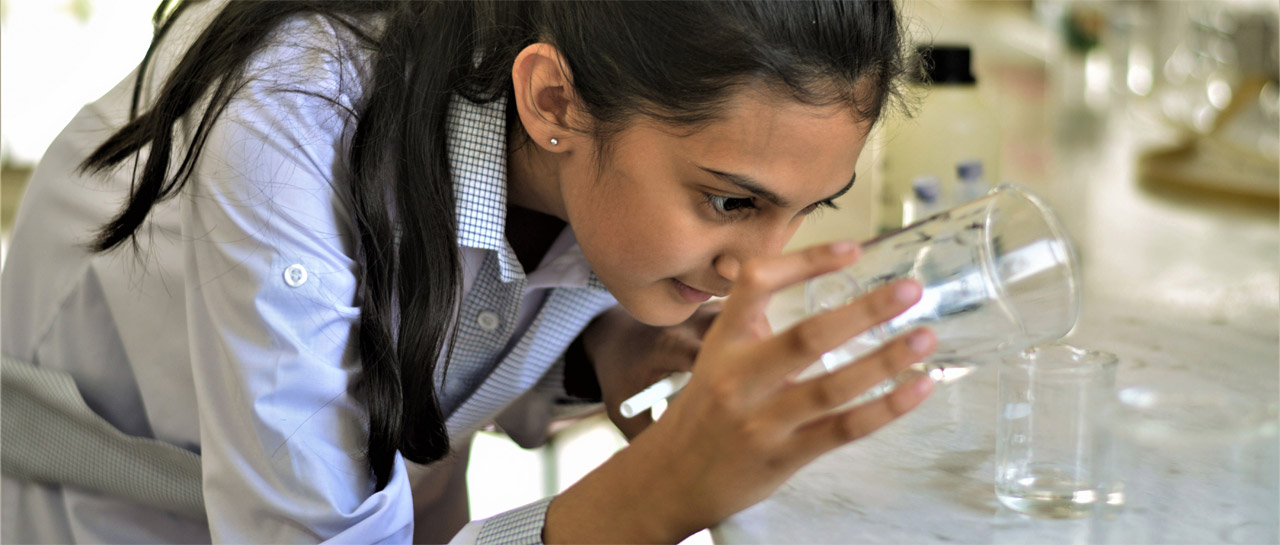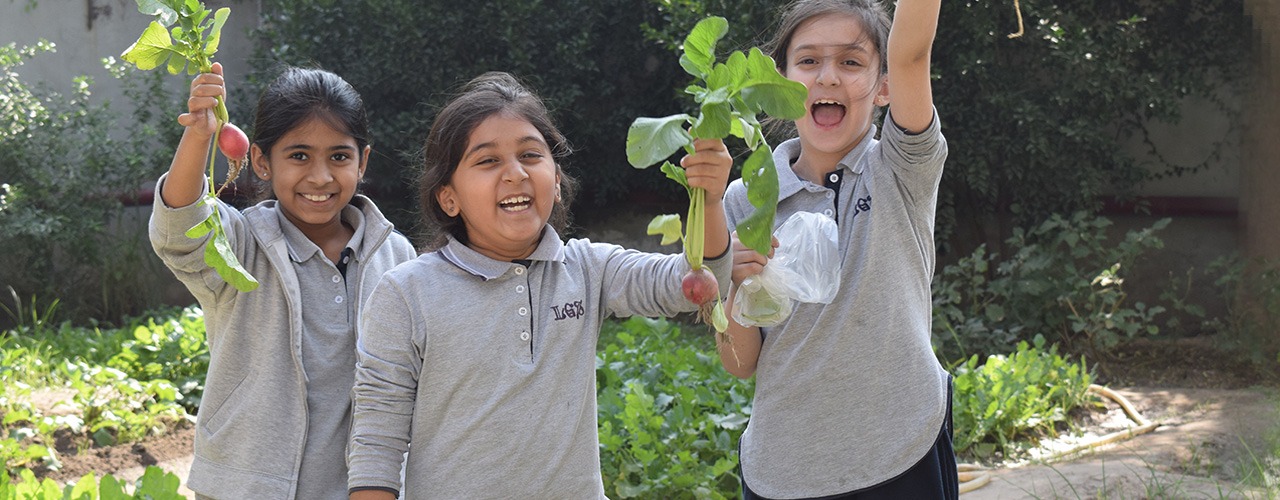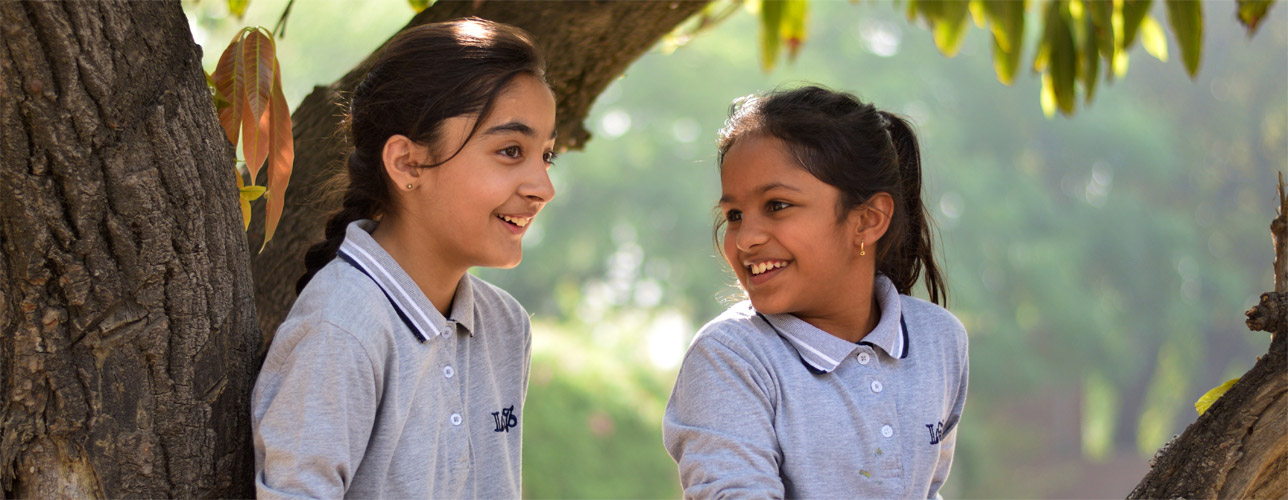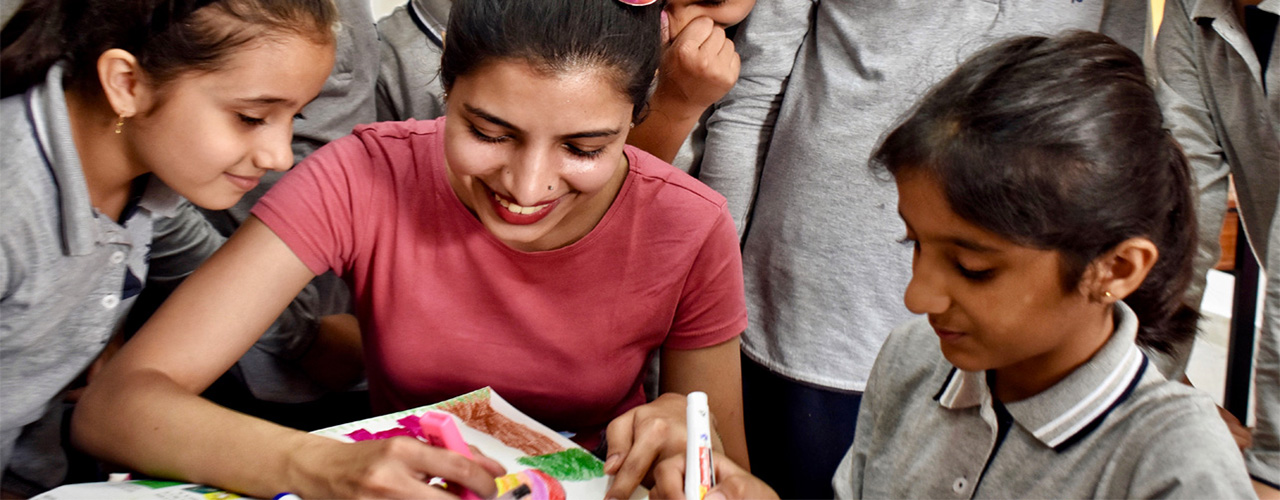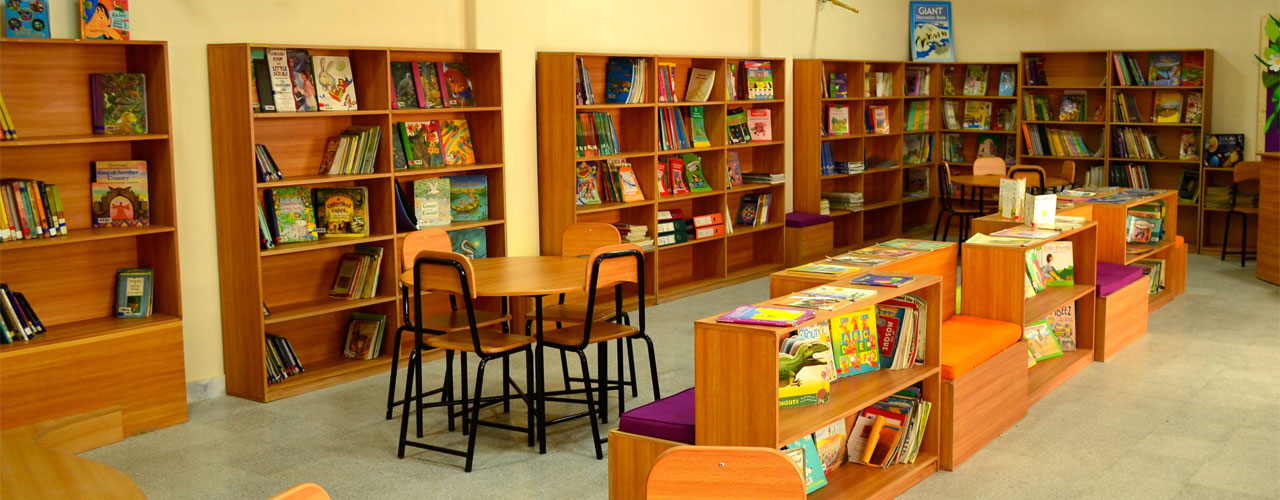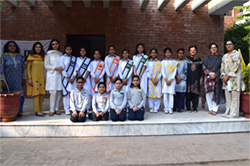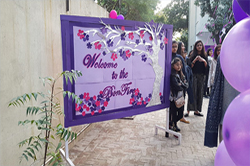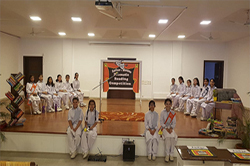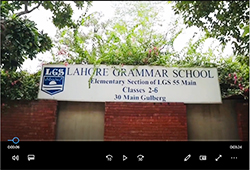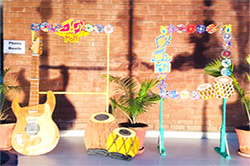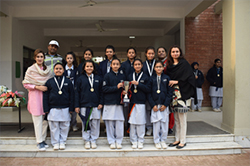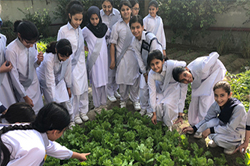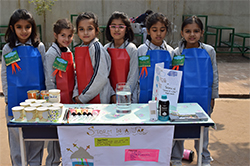News and Events
Excellence is not being the best, it is doing your best.
HOLISTIC APPROACH
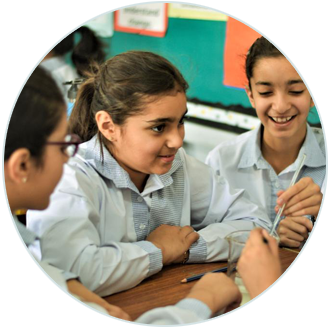
Our junior campus is housed at 30 Main Gulberg, Lahore, across the road from our Senior School Campus.
The school is committed to working together to provide an exciting environment for learning and overall development of young girls. Guided by dedicated and experienced teachers, students thrive in an environment that encourages questioning, provides choices and offers support.
The gears of childhood are captured and moved in a manner most conducive to learning. Collaborative learning is at the core of our education philosophy; the development of critical and logical thinking skills underpins all aspects of our curriculum. The excitement of childhood is what we wish to capture as students discover and unravel the world around them. To seize this excitement we offer endless opportunities for them to work together where they learn to resolve differences, respect others’ opinions and develop collaborative skills.
Responsible citizenship is the key to values that are inculcated in our school. Recycling, composting, reducing plastic, water conservation and learning to grow their own food are some of the initiatives the school has undertaken for students to own the environment that they study in. We are confident that they carry these values to their homes according to anecdotal evidence conveyed to us.
Empathy and Compassion, is a value that is held in high esteem at the school. Students generate funds through bake sales and these funds are used to support different charities within our community. Every year the Social Work Committee launches drives for the collection of clothes to help the poor and we find that students donate generously. Fruit Fridays provide fruit to children in underprivileged schools and Operation Eid/Christmas Child provides marginalized children with a gift box for their culturally important day.
We are proud to be a part of this journey as faculty and families join together with students, and create an exciting environment full of endless possibilities.
INTERACTIVE COMMUNITY
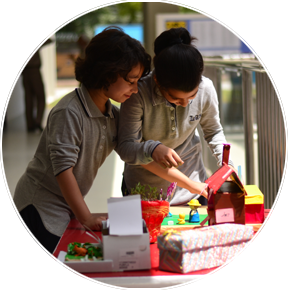
We believe that a child is not sent to school to merely pass a battery of tests. We encourage students to be helpful and kind to others, use their intelligence and abilities as they develop into responsible teenagers. These aspects of students’ life with us are not necessarily reflected in the report card. Towards this end, we look at our students as active builders of their own intellectual structures reaching far beyond grades and tests.
We believe that children’s intellectual development is not primarily derived from deliberate teaching but rather the environment created for them and the methodology applied.
In order for us to succeed at imparting values that we cherish, our students are taught using real-life experiences, current affairs and other sources of knowledge besides text book information. By encouraging reflection and questioning rather than passive memorization of facts, teachers make learning naturally interesting. Our students are a part of a rapidly changing world; a world that will need quick thinking, innovative problem solving and collaborative effort.
Holistic education aims at enabling a person to see herself as part of a universal whole by engaging directly with the environment. The rich culture of Lahore is reflected in our students; proud ownership of our language, dress and cultural heritage are all a part of the school environment. Yet students appreciate diversity by celebrating differences that make us unique. Learning about different cultures and places enables students to form knowledge based, unbiased opinions, and develop tolerance and compassion.
Fostering collaboration rather than competition in classrooms, understanding instead of memorization, acceptance in place of prejudice, will give children roots and wings to be the dreamers, builders and leaders of a better tomorrow.

CAMPUS LIFE
Our purpose built campus with its sprawling grounds, amphitheater, science, math and computer labs, vegetable garden and many activity rooms, offers opportunities for hands on learning, questioning, experimenting and exploring.
Students have a full schedule of core subjects and co-curricular lessons, including art, music, games, computer programming and dance. After school clubs offer opportunities to develop leadership qualities, confidence and collaborative skills.
CURRICULUM
We believe in continuous, on-going evaluation. The Student’s class work, regularity of homework, project work and class participation are all taken into account when working out her grade.
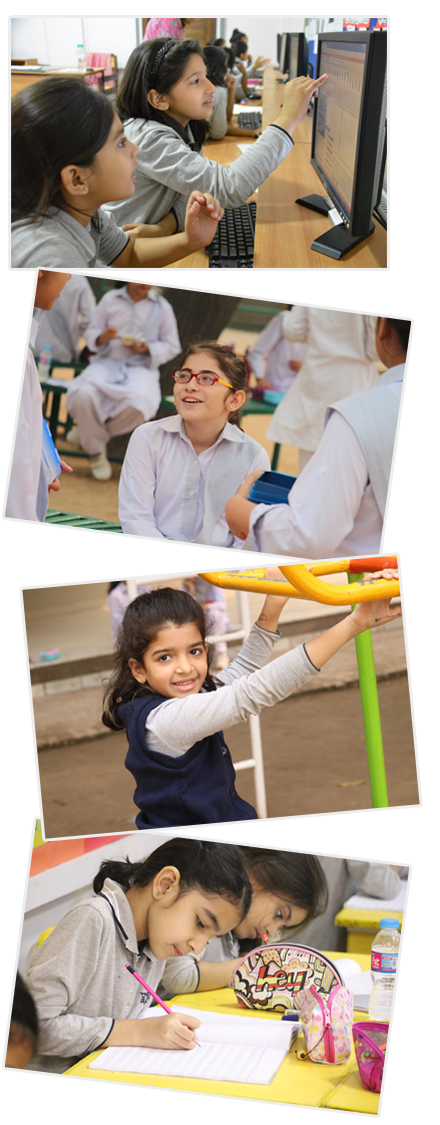
Mathematics:
The Mathematics curriculum essentially explores five content areas: numbers, shapes, measurement, data handling and problem solving. Mental math is a key component of the numbers content. The curriculum focuses on principles, patterns, functions and relationships so the learners can apply their mathematical knowledge in real life situations. Every new topic is introduced in the math lab which enables students to understand a concept physically before moving to the abstract. Work is assigned regularly on MyiMaths, an online programme.
Languages:
The languages curriculum, for both Urdu and English, aims at equipping students with a strong command of spoken and written language skills. Reading, oral and written comprehension, understanding of grammar and fluency of writing are pivotal parts of language teaching. Students are taught to plan, revise and evaluate their writing for coherence and fluency.
A comprehensive reading programme teaches oral comprehension, elocution and improves reading fluency. Reading Eggspress is an online programme which we use regularly to further improve English Language skills.
Global Perspectives:
The Global Perspectives programme seeks to equip students with twenty-first century skills by departing from traditional models of education and placing the students at the heart of their learning process. By studying global issues, learners explore different and often opposing perspectives to develop critical thinking, research and communication skills. Some of the topics include: How can we stay healthy? How do I communicate with people? The right to learn, Helping people belong, Being water wise, Using energy, If I were a world leader and Reduce, repair, reuse and recycle.
Science:
Students are taught to use the following scientific methods, processes and skills to study the science curriculum:
– Asking relevant questions and using different types of scientific enquiries to answer them
– Setting up simple practical tests including comparative and fair tests
– Making careful observations and, where appropriate, taking accurate measurements using standard units
– Gathering, recording, classifying and presenting data in a variety of ways to help in answering questions
– Recording findings using simple scientific language, drawings, labeled diagrams, keys, bar charts and tables
– Giving oral and written explanations, displays or presentations of results and conclusions
– Identifying differences and similarities or changes related to scientific ideas
– Using results to draw simple conclusions, make predictions, suggest improvements and raise further questions.
Social Studies :
Social studies curriculum aims to inspire a curiosity and fascination about the world and its people. It equips students with the knowledge of diverse places, people, resources and natural and human environments. It teaches students historical concepts such as continuity and change, cause and consequence, similarity, difference and significance. Pupils are able to see how we got to this point in time, recognize the complexities of history, and understand what impact geography and location of a place has on its history and habitats.
Wonder Web:
The Wonder Web programme is based on John Piaget’s model of children as builders of their own intellectual structures. This model was adopted and developed further by Seymour Papert at the Massachusetts Institute of Technology in the USA.
The programme recognizes that children are innately gifted learners, acquiring a vast quantity of knowledge, long before they ever go to school and without ever being taught.
For example, children learn to speak, learn to navigate space and learn enough logic and rhetoric to get around parents and to get around space, without ever being taught. All this happens without deliberately imposed formal instruction. How does this take place and more importantly Why?
If we look at the “child as a builder’ model we begin to understand. All builders need material to build with. Our material is the computer and the child is set free to explore its powerful possibilities. The students use these techniques across all subjects as the activity is cross curricular.
There is a failure to appreciate just how much learning takes place as a child grows up. None of it is a result of deliberate teaching. By the same logic a massive presence of computers, interactive objects and algorithms have a tremendous impact on the child’s cognitive and critical thinking skills as she navigates all that is presented to her and the fear of learning is minimized to the extent possible.
The programme focusses on attitudes, creativity, research and curiosity. The programme recognizes the value of failure and the tenacity required to overcome failure.
Our programme recognizes these findings and adapts these processes as we ensure that our students benefit from modern techniques, though not measurable in any manner; yet have a vital and long lasting impact on the child’s mental development.
ADMISSIONS
Could 30 Main be right for you? We seek to admit optimistic, energetic, and engaged students who are ready to take advantage of the world of endless opportunities and challenges we provide to our students. 30 Main offers a rigorous yet flexible curriculum enriched by a wide variety of interdisciplinary courses and activities.
|
APRIL’22
29
Early Admission Test
|
JUNE’22
4
REGULAR Admission Test I
|
AUGUST’22
6
REGULAR Admission Test II
|
Notice Board
Important Notices will be uploaded here whenever possible. However, please make sure that your current cell number has been entered in the School database as our primary means of communication with parents and students is via WhatsApp.
![]() End of the Term Newsletter class 5&6
End of the Term Newsletter class 5&6![]() Academic Policy
Academic Policy
![]() Behaviour Policy
Behaviour Policy
![]() Parent’s Handbook
Parent’s Handbook
Free Online Audio Books![]() Suggested English Reading List
Suggested English Reading List![]() Suggested English Reading List Grade 5
Suggested English Reading List Grade 5![]() Suggested Urdu Reading List
Suggested Urdu Reading List![]() Recommended Websites
Recommended Websites![]() Important notices will be uploaded here
Important notices will be uploaded here




